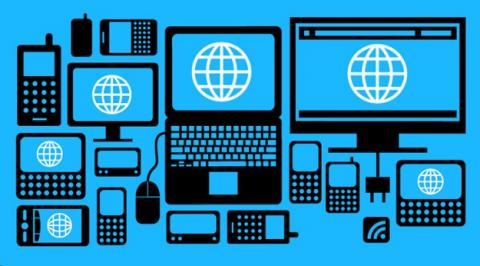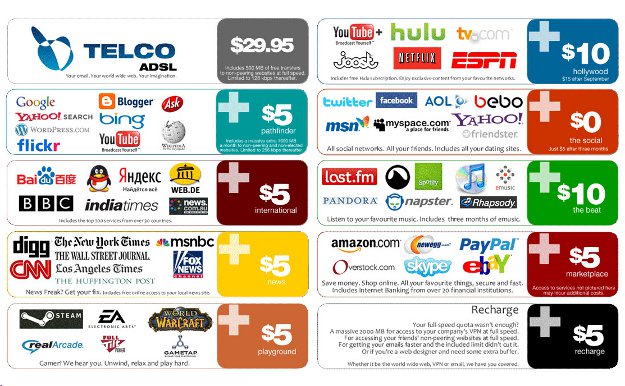Why Americans Still Don’t Understand Net Neutrality

Most Americans don’t understand the idea of net neutrality and can’t identify its significance as a platform, as multiple polls from groups like the Glover Park Group and Public Opinion Strategies have shown, yet when President Barack Obama called on the Federal Communications Commission in November to promote the issue, crusaders from both parties took a stand. The problem? Cat-searching Web surfers and blogging moms alike still don’t understand net neutrality, but now the issue is a political one and the uninformed individual is required only to choose a familiar side: red or blue.
Enter Ted Cruz, the sometimes sweetheart of Tea Party Republicans with a terrifying gift for tweeting unforgettably stupid one-liners, and his social media denouncement of Obama’s November 10th call-to-action. On Facebook, Cruz wrote that net neutrality is equivalent to Obamacare for the Internet, and that the Internet shouldn’t operate at the speed of government – probably no one is arguing with that last point, but Cruz’s argument that net neutrality is the “biggest threat to the Internet” is the perfect example of the issue’s branding, or lack thereof, and the cloud of confusion that surrounds it. For Republicans, Cruz’s argument has defined net neutrality as an antagonist of the free market – a staple of the conservative diet – instead of its true identity as a proponent.
To Cruz and his party, net neutrality restricts freedom, but what does it really do? Currently, the Internet is a free-for-all in which Internet service providers (ISPs) can enter into financial agreements with certain Websites – Comcast and Netflix, for example, have a financial agreement so that the video streaming Website can have better access to customers. If net neutrality isn’t enforced, those in favor of it fear that such deals will continue to be made and that larger companies will overpower their smaller, start-up counterparts and crush innovation altogether. Specifically, net neutrality advocates suspect ISPs will pay for prioritized access to consumers and have an unfair advantage, or even worse that certain Internet users will possess the ability to pay for faster service, creating a wealth-based space in a once equally accessible plane.
In the face of such fear, Obama asked the FCC to reclassify the Internet service providers as common carriers under Title II of the Telecommunications Act, meaning that the Internet would be treated like a public utility. Under the new classification, ISPs would no longer be able to give certain websites an advantage over others by slowing down or speeding up a user’s access. If the FCC were to follow Obama’s recommendation, consumers would pay a single fee to ISPs and receive equal access to the entire Internet without interference from providers, meaning that nonprofits and schools (or any otherwise financially handicapped institution) would have as much access to the Internet as a Wal-Mart tycoon.
In its true form, net neutrality seems like a Republican’s wet dream - an unregulated and open market motivated by competition – but the party can’t be bothered to do its research, instead relying on President Obama to make the first move and using his so-called socialist agenda (or whatever word-du-jour they choose) to make their own sound bites seem valid.
Unfortunately, when Obama made note of his support for net neutrality, he made the issue a party platform and widened the partisan gap – in short, he gave the now Republican-run Congress a once obscure force to fight against.
Knowing conservatives would grasp at the chance to counter him, why would Obama bring up a topic he hasn’t really mentioned since his original 2008 presidential campaign? Well, he has nothing to lose with only two years left in office and a Republican-controlled Congress. Some have suggested that the president is now searching for areas of common ground between parties, since resolving stalemates in Washington with such a divide would be nearly impossible, but the seemingly uncontroversial topic has created bigger problems for Obama in the past few months than anticipated.
Already, the GOP has issued a letter challenging the FCC’s authority on the issue of net neutrality, which would have been more or less ignored had Obama not unearthed the topic. Despite the Republican party’s petty games, concession must be made for the occasional moderate: Senate Minority Leader Mitch McConnell for negotiating a last-minute deal with Majority Leader Harry Reid and saving the country from defaulting on its debt, or Senator Lindsey Graham for oft making bipartisan deals at the White House and criticizing the Tea Party strand. In an interview with the Associated Press, Republican Senator Bob Bennett slammed the radical Tea Partiers for hijacking the GOP and leading the party aimlessly.

“At the moment there is not a cohesive Republican strategy of this is what we’re going to do,” Bennett said. “And certainly among the Tea Party types there’s clearly no strategy of this is what we’re going to do.”
Perhaps, then, there should be a distinction between Congressional Republicans – whom the Tea Party has romanced – and the GOP. In fact, four of five Republicans opposed the idea of allowing broadband access providers to charge Websites or streaming video services for faster speeds, according to one poll conducted by the University of Delaware’s Center for Political Communication. A second poll conducted by Vox Populi for the Internet Freedom Business Alliance found the same results – those who identified as “very conservative” adamantly opposed any kind of monopolization of the Internet. Four of five Republican respondents even argued that Congress should take action against such a possibility. In that case, Congressional Republicans appear not to be representing their constituents, but their corporate endorsers like Verizon and Comcast.
As early as 2011, Verizon admitted unabashedly that it had donated to Senators Rand Paul and Marco Rubio. The company also donated money to the general House Tea Party Caucus, according to Fast Company. AT&T was also found to have donated nearly $400,000 to members of the House Tea Party Caucus, including House Majority Leader John Boehner. In 2013, Comcast executive vice president David L. Cohen endorsed Tea Party Republican Gov. Tom Corbett, in addition to Comcast donating heavily to Boehner, OpenSecrets reported.
Finally, not willing to risk its ambitions on the stalemate that is Capitol Hill, Verizon explicitly took down the FCC by suing the organization for its first batch of net neutrality rules. It’s clear, then, when ISPs so vehemently organize against net neutrality that Congressional Tea Party Republicans would focus their “aimless” efforts on guaranteeing their personal funding – that is, fighting net neutrality.
Now, fresh-faced and holding Congressional majority, the Tea Party’s next move will no doubt be a reaction to the impending FCC vote on net neutrality rules in February. Though lawmakers are unsure exactly what steps they’ll take, Republican staffers have suggested that legislation blocking reclassification of the Internet as a public utility and cutting the FCC’s budget is not out of the question. A kind of Congressional veto, the Congressional Review Act, is a seldom used but applicable tool that Congress could also use to void any major FCC rule.
Despite the potentially black future of an Internet bureaucracy in which ISPs have the power to censor content (like when Verizon blocked NARAL Pro-Choice America’s text messages) or bundle websites like cable packages (an International package that might include BBC News or Hollywood access for viewing Netflix and YouTube), there is hope.
Writing for a three-judge panel following the U.S. Court of Appeals’ decision to overrule the FCC’s original net neutrality rules, U.S. Circuit Judge David Tatel noted that the organization does have the power to regulate broadband companies, Bloomberg reported. However, the trick is finding the right legal framework for its open-Internet regulations.
FCC Chairman Tom Wheeler is expected to announce a new set of net neutrality rules in February.
Author Bio:
Emily Smith is a contributing writer at Highbrow Magazine.





























































































































































































































































































































